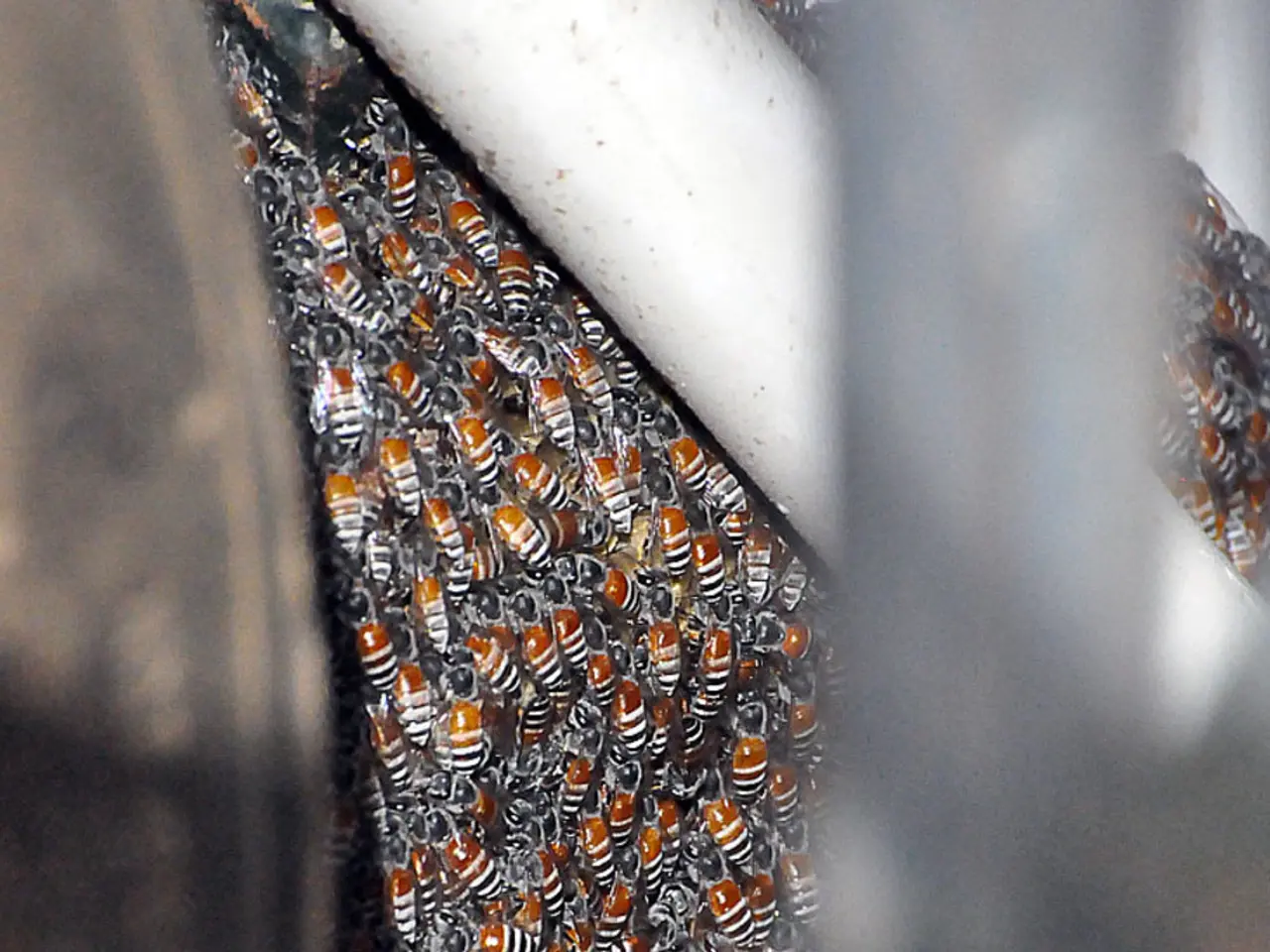Bee Pollen: Buzzing About or Just Hype?
Natural Bee Product Explained: Understanding Bee Pollen and Its Unnecessary Consumption
Bee pollen has had its time under the spotlight among folks seeking natural remedies, but it's not a modern phenomenon - it's ancient, dating back thousands of years, even with Hippocrates, who died in 375 BC, often credited for prescribing it for its supposed healing effects.
In today's world, advocates of bee pollen sometimes refer to it as "nature's multivitamin,"Claiming it has the power to bolster immunity, prevent infections, and ease menopause symptoms, with some even suggesting it might lower the risk of conditions like heart disease, liver disease, and certain forms of cancer.
But is this true? Not likely so, says Robert Saper, MD, MPH, a wellness and preventive medicine specialist.
"There's no convincing evidence to support bee pollen's effectiveness in treating any condition I'm aware of," Dr. Saper says. "Although it's been promoted to help various conditions, there's inadequate data to determine its effectiveness."
Studies on the potential benefits of bee pollen have primarily been small, with many conducted on animals, so these benefits are yet to be conclusively proven. Moreover, bee pollen carries risks that have already been proven.
Dr. Saper delves deeper into bee pollen, including what it is, what it can and can't do, and what alternatives you should consider.
What the Heck is Bee Pollen?
"Bee pollen is essentially a mix of nectar, pollen, and bee saliva," Dr. Saper explains. "Bees gather pollen from their plant-hopping adventures, combine it with enzymes from their bodies, and pack it into the honeycomb."
It's important to note that bee pollen is not the same as honey or beeswax. Other bee byproducts include propolis and royal jelly.
So, What Can Bee Pollen Do?
"Bee pollen contains a variety of vitamins, nutrients, amino acids, and antioxidants, similar to other plant-based products," Dr. Saper confirms. "However, getting nutrients through eating a balanced diet of fruits and vegetables is a better approach."
The idea that bee pollen is recognized as a medication in Germany doesn't necessarily mean it's safe to use elsewhere. The quality of European-based herbal supplements may be higher, but U.S.-based studies haven't been able to reproduce the same promising results seen in Europe.
Will Bee Pollen Give Me a Bust Boost?
No, this is a widely-spread internet myth. Bee pollen will not increase breast size.
Health Risks of Bee Pollen
While it's not yet clear whether bee pollen could benefit certain conditions, what is clear is that taking bee pollen carries some risks:
- Unsafe for people with bee allergies.
- Can cause allergic reactions in people with pollen allergies.
- Often contaminated with mycotoxins (toxic compounds produced by certain types of mold).
- No regulation or standardization process in the U.S.
Dr. Saper goes into detail about each risk.
Unsafe for People with Bee Allergies
Bee pollen can cause allergic reactions in those who are allergic to bees, given that it's a bee byproduct containing bee saliva. If you have a bee allergy, you may be allergic to bee pollen products as well.
Allergic Reactions
Pollen is a primary cause of allergic rhinitis or hay fever. Therefore, if you have a pollen allergy or seasonal allergies, it's best to avoid bee pollen.
Mycotoxin Contamination
Mycotoxins are toxic substances produced by certain molds. Mycotoxins have been found in bee pollen, posing a health risk when consumed.
No Regulation or Standardization
In the United States, the supplement industry lacks adequate regulation, which means that supplements like bee pollen may not be safe.
How Much Bee Pollen Should You Take?
Ideally, you should avoid taking bee pollen altogether. Maintaining a healthy diet rich in fruits and vegetables will provide the nutrients you need—without the risks associated with unproven supplements like bee pollen.
If you're concerned about getting enough necessary micronutrients, it may be appropriate to take a high-quality multivitamin under the guidance of a healthcare professional. Leave the pollen gathering to the bees!
- Hippocrates, who died in 375 BC, often credited for prescribing bee pollen for its supposed healing effects, indicating its long history in health and wellness.
- Despite claims suggesting that bee pollen might lower the risk of conditions like heart disease, liver disease, and certain forms of cancer, Robert Saper, a wellness and preventive medicine specialist, states there's no convincing evidence to support its effectiveness in treating any condition.
- Bee pollen carries risks that have already been proven, such as being dangerous for people with bee allergies, causing allergic reactions in people with pollen allergies, being contaminated with mycotoxins, and lacking regulation in the U.S. Therefore, it's suggested to maintain a healthy diet rich in fruits and vegetables, or take a high-quality multivitamin, rather than relying on unproven supplements like bee pollen.







